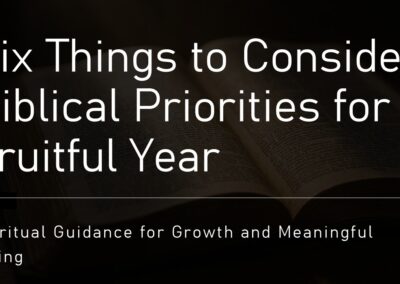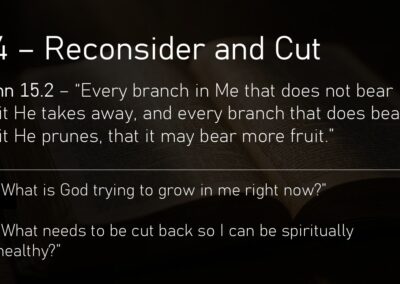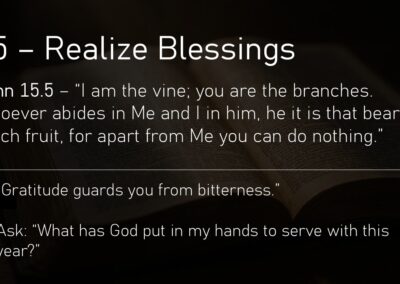Six Things to Consider: Biblical Priorities for a Fruitful Year
A new year has a way of waking up our “goal-setting” side. We plan, we list, we promise ourselves we’ll do better. But Jesus gives us a better starting point than willpower: abiding. In John 15, He reminds us that real fruit doesn’t come from trying harder—it comes from staying close to Him.
Here are six biblical priorities to consider if you want a fruitful year marked by spiritual growth and meaningful living.
#1 – Put God First
Jesus says, “Abide in Me… whoever abides in Me and I in him… bears much fruit” (John 15:4–5). Before you plan goals, plan devotion. A great year starts when Jesus becomes the root, not the accessory. If your schedule is full but your soul is empty, the order needs to change.
#2 – Choose Faith Over “Won’t”
John 15:7 connects abiding with prayer and confidence: “If you abide in Me… ask whatever you wish.” Abiding reshapes your inner talk—from “I can’t” to “Christ can grow fruit in me.” Replace “This year will be the same” with “God can do more than I expect.” Faith doesn’t deny reality; it invites God into it.
#3 – Worship Before You Feel It
Jesus also speaks about joy: “that My joy may be in you, and that your joy may be full” (John 15:11). Worship isn’t a mood; it’s a decision. Rejoicing is not pretending life is easy—it’s declaring God is still good. Sometimes the quickest way out of spiritual heaviness is to lift your eyes and praise anyway.
#4 – Reconsider and Cut
God is not only interested in growth—He’s interested in more growth. “Every branch… that does bear fruit He prunes, that it may bear more fruit” (John 15:2). Ask: “What is God trying to grow in me right now?” Then ask: “What needs to be cut back so I can be spiritually healthy?” Pruning can feel painful, but it’s proof God is working.
#5 – Realize Your Blessings
Gratitude guards you from bitterness. When we forget what God has already done, discouragement gets louder. Pause and ask: “What has God put in my hands to serve with this year?” Blessings aren’t only comforts—they’re tools for ministry.
#6 – Stop Trying; Start Abiding
The goal isn’t perfection—it’s faithfulness. Don’t aim at “a better year.” Aim at “a closer walk.” Jesus’ words are clear: “Apart from Me you can do nothing” (John 15:5). But with Him, fruit is possible—steady, lasting, and God-glorifying.
As you step into a new season, don’t just set resolutions. Set your heart to remain in Christ. A fruitful year begins where every good thing begins: abiding in the Vine.
Happy New Year!
Just some thoughts,
















